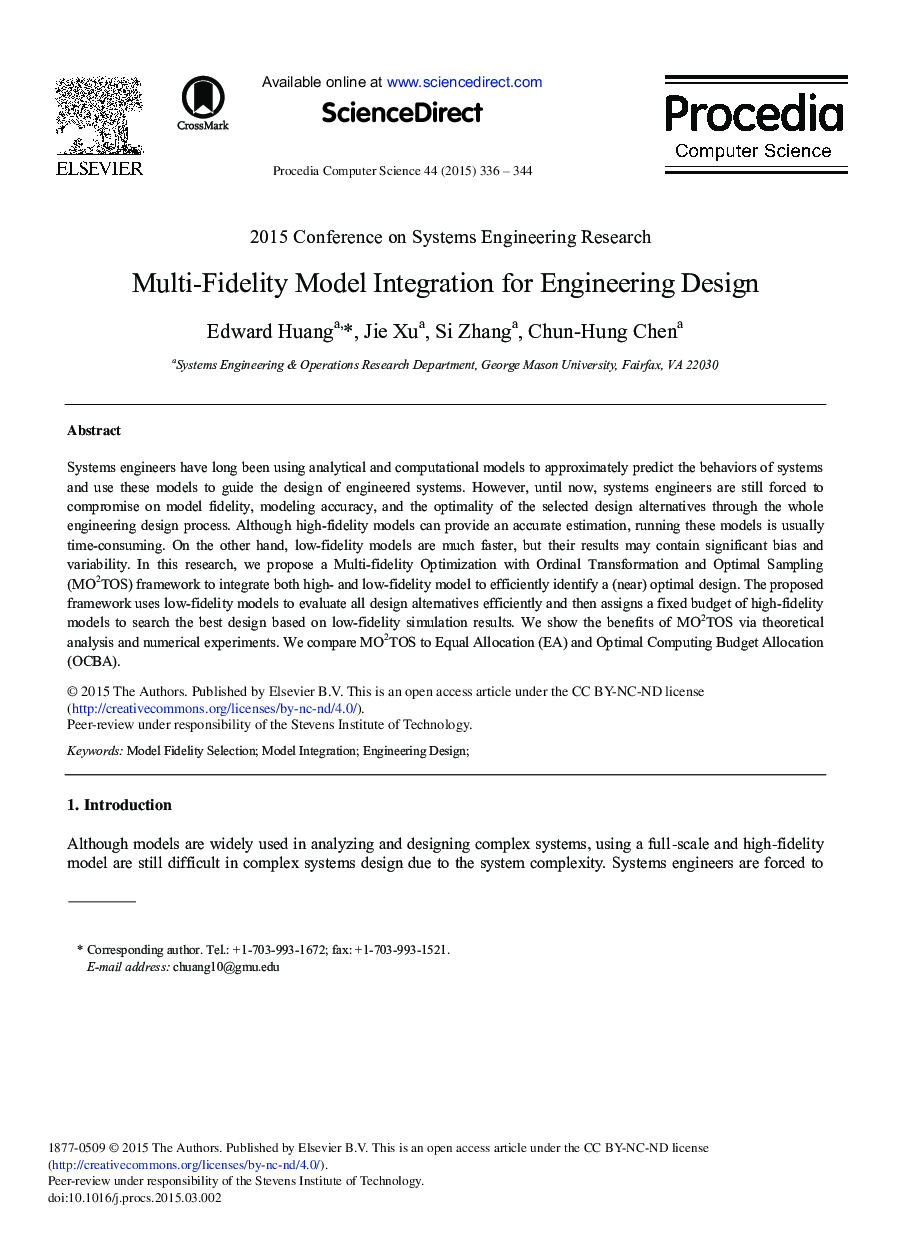| Article ID | Journal | Published Year | Pages | File Type |
|---|---|---|---|---|
| 488731 | Procedia Computer Science | 2015 | 9 Pages |
Systems engineers have long been using analytical and computational models to approximately predict the behaviors of systems and use these models to guide the design of engineered systems. However, until now, systems engineers are still forced to compromise on model fidelity, modeling accuracy, and the optimality of the selected design alternatives through the whole engineering design process. Although high-fidelity models can provide an accurate estimation, running these models is usually time-consuming. On the other hand, low-fidelity models are much faster, but their results may contain significant bias and variability. In this research, we propose a Multi-fidelity Optimization with Ordinal Transformation and Optimal Sampling (MO2TOS) framework to integrate both high- and low-fidelity model to efficiently identify a (near) optimal design. The proposed framework uses low-fidelity models to evaluate all design alternatives efficiently and then assigns a fixed budget of high-fidelity models to search the best design based on low-fidelity simulation results. We show the benefits of MO2TOS via theoretical analysis and numerical experiments. We compare MO2TOS to Equal Allocation (EA) and Optimal Computing Budget Allocation (OCBA).
